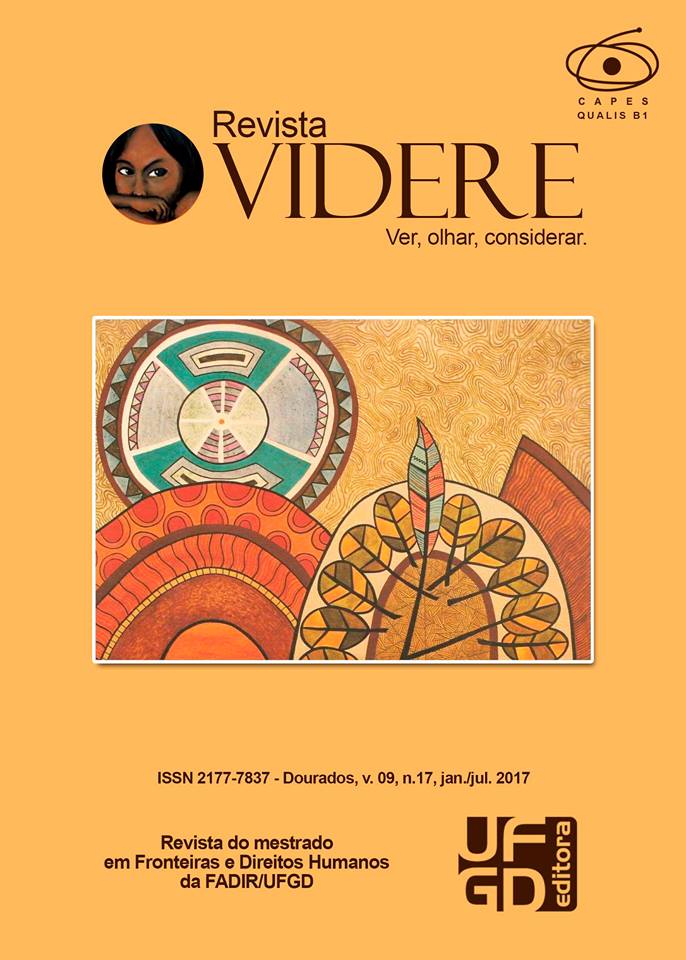A constituição histórica da racionalidade ecológica e os problemas ambientais na contemporaneidade
DOI:
https://doi.org/10.30612/videre.v9i17.5809Keywords:
Meio ambiente. Racionalidade. História ambiental.Abstract
O presente trabalho busca trazer elementos históricos necessários à compreensão da racionalidade desenvolvida em torno da gestão dos bens naturais na contemporaneidade. Para tal, parte-se da análise de como a percepção das relações entre ser humano e natureza foi sendo modificada ao longo da história, culminando nos atuais modos de observar e reagir diante dos problemas ambientais atuais, especialmente por meio da instituição de políticas públicas. Assim, parte-se da análise de como o ser humano compreendia a natureza desde a Antiguidade (especialmente na Grécia), passando pelas visões predominantes na Idade Média, até chegar à Modernidade. A visitação histórica das concepções em cada período histórico, mostra-se uma ferramenta importante para compreender as bases, abrangências e limites da ação humana diante da natureza, sendo esta, portanto, uma ferramenta interessante para que seja possível avaliar os motivos do fracasso das políticas ambientais na contemporaneidade.Downloads
Downloads
Published
How to Cite
Issue
Section
License
Authors must accept the publication rules when submitting the journal, as well as agree to the following terms:
(a) The Editorial Board reserves the right to make changes to the Portuguese language in the originals to maintain the cultured standard of the language, while respecting the style of the authors.
(b) Authors retain the copyright and grant the journal the right to first publication, with the work simultaneously licensed under the Attribution-NonCommercial-ShareAlike 3.0 Brazil (CC BY-NC-SA 3.0 BR) that allows: Share - copy and redistribute the material in any medium or format and Adapt - remix, transform, and create from the material. CC BY-NC-SA 3.0 BR considers the following terms:
- Attribution - You must give the appropriate credit, provide a link to the license and indicate whether changes have been made. You must do so under any reasonable circumstances, but in no way that would suggest that the licensor supports you or your use.
- NonCommercial - You may not use the material for commercial purposes.
- Sharing - If you remix, transform, or create from material, you must distribute your contributions under the same license as the original.
- No additional restrictions - You may not apply legal terms or technological measures that legally restrict others from doing anything that the license permits.
(c) After publication, authors are allowed and encouraged to publish and distribute their work online - in institutional repositories, personal page, social network or other scientific dissemination sites, as long as the publication is not for commercial purposes.



















